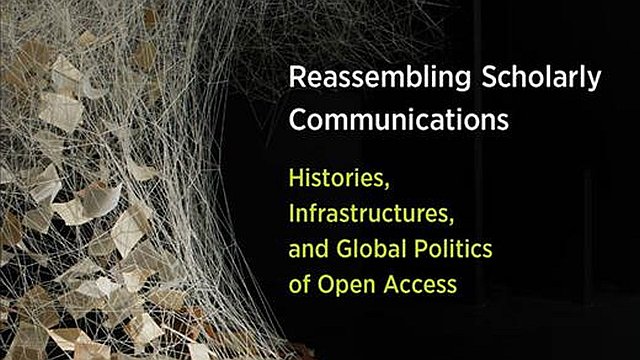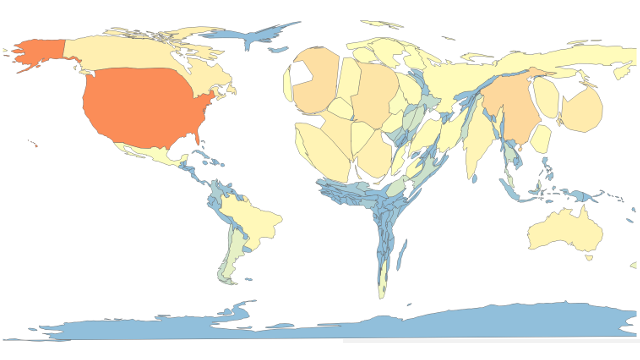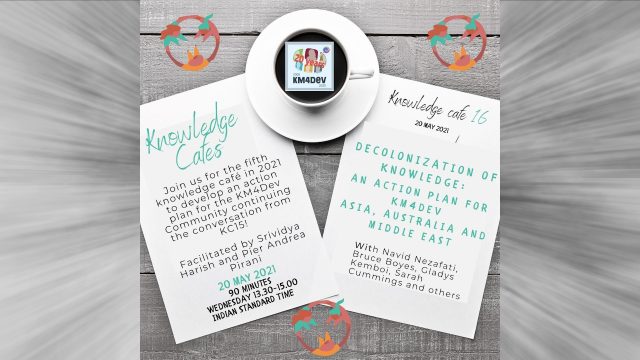
Open access to scholarly knowledge in the digital era (section 1): Colonial influences
This article introduces section 1 of a series of articles summarising the book Reassembling Scholarly Communications: Histories, Infrastructures, and Global Politics of Open Access.
In presenting the first section on colonial influences, Europe-based volume editors Martin Paul Eve and Jonathan Grey acknowledge that own their positions on open access, open science, and other open digital transformations of research have been shaped not only by their geographical stance but also their own historical proximity to former empires and associated social, cultural, political, and economic circuitry, which often continue to operate.
The four chapters in this section reflect upon issues of global inequality and paint a very different picture to the scene with which those from the Global North may be familiar.
1.1 – The alienation of African knowledge – open access as a pharmakon
The section opens with a somewhat less than optimistic chapter about the spread of open access. Thomas Hervé Mboa Nkoudou shows how the spread of particular business models for open access can be intensely problematic. On the one hand the widespread accessibility of work may be advantageous for those working on the African continent, but on the other hand it is argued that the perpetuation of the article processing charge system is incredibly dangerous. For Nkoudou, the frame of the pharmakon – the simultaneous poison and cure – is helpful for understanding this dual-edged phenomenon. Nkoudou ends with a series of proposals for how we can decolonize knowledge for a more epistemically just world.
1.2 – Scholarly communications and social justice
In their chapter, Charlotte Roh, Harrison W. Inefuku, and Emily Drabinski continue Nkoudou’s theme and examine the important ways in which our present systems of scholarly communications worldwide are rooted in colonial histories of empire that have fostered deep inequalities. Roh and colleagues identify a set of perpetuations of race, ethnicity, gender norms, and inequalities in research production and promulgation that all have their roots within colonial systems of privilege.
1.3 – A locally-driven “library as a publisher” service for Africa
All, though, is not lost. In the third chapter of the section, Reggie Raju, Jill Claassen, Namhla Madini, and Tamzyn Suliaman detail the ways in which the concept of Ubuntu — a Zulu term advancing communal justice en route to promoting an egalitarian society — can be seen in new library publishing initiatives in South Africa. At present, for Raju and colleagues, there is a serious problem in the current open publishing landscape: equitable participation is not fixed by the equitable ability to read. Without the more systemic and bottom-up approaches that they detail, it seems likely that open practices will merely continue to perpetuate damaging legacies.
1.4 – Can open scholarly practices redress injustices in knowledge-making?
Finally for this first section, Denisse Albornoz, Angela Okune, and Leslie Chan consider what it might take to transform our notions of pragmatic open access, in the present, into future realities that address inequality. Examining several worldwide systems of scholarly communications from decolonial and feminist perspectives, they propose a model that will address the social justice and educational issues that sit at the heart of open access. For “the infrastructures we build and the practices we enable,” they write, “need intentionally to aim to highlight voices, worldviews and epistemologies that have been historically excluded from the system.”
Next part (chapter 1.1): The alienation of African knowledge – open access as a pharmakon.
Article source: This article is an edited summary drawn from the Introduction of the book Reassembling scholarly communications: Histories, infrastructures, and global politics of Open Access1 which has been published by MIT Press under a CC BY 4.0 Creative Commons license.
Article license: This article is published under a CC BY 4.0 Creative Commons license.
Reference:
- Eve, M. P., & Gray, J. (Eds.) (2020). Reassembling scholarly communications: Histories, infrastructures, and global politics of Open Access. MIT Press. ↩
Also published on Medium.



